TATTOOS ON THE HEART
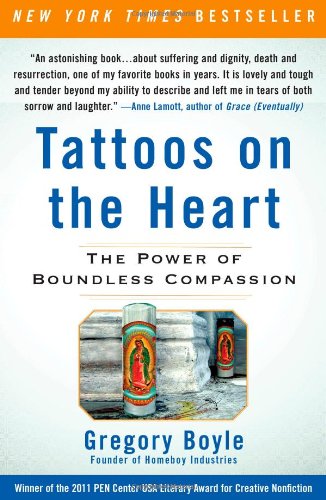
The book Tattoos on the Heart by Gregory Boyle is a story about “the power of boundless compassion” and it caught my attention . I liked it as soon as I read the first page because it is a true story of a helper in our society. Sometimes it seems like too many people in the United States look out for themselves but this man is so much for other people. It is important to be reminded and to see stories of caring for one another. It is important to see stories of love without judgement. He does not care about the labels of addiction, poverty and gangs. He sees the ones in most need as brother and sister to be respected and loved.
This is a chapter on God, I guess. Truth be told,the whole book is. Not much in my life makes any sense outside of God…. I am helpless to explain why anyone world accompany those on the margins were it not for some anchored belief that the Ground of all being thought this was a good idea.
page 21 About God, I Guess
Many say religion divides people. For those who act on what they say they believe; their understanding of God provides strength and healing. Freedom of religion in America can lead to a greater good.
The relationships in this book are made through service. Religion gives people a bigger language for understanding each other because it teaches them how to serve. The first amendment of the USA is freedom of religions. This freedom opens the door to be good citizens and helps people to form good personality.
Greg talks about offering opportunities, not to people who need help but to those who want it. What difference do you think this makes?
He gives the people salvation from the death and violence and hate of gangs. Gregory Boyle gives them a choice. It is up to them if they decide to take it but he teaches people how to make good choices by giving them good choices .
Greg writes,”kinship (is) not serving the other, but being one with the other. Jesus was not ‘a man for others’;he was one with them.” how are the two different, and how does Greg integrate this distinction into his work?
He makes kinships by being with the gang members. He has the idea that one God makes all people and so all people have the possibility of being like family. His growth mindset can change all for better. People need goodness; not more gangs. His work is good- not bad work. Because of him and the lives he touches there is a change for the good. Religion is meant to unite and not divide.
The Rev. Gregory J. Boyle, S.J., is the founder and executive director of Homeboy Industries in Los Angeles, the largest gang intervention, rehabilitation and re-entry program in the world.
A native Angeleno, Father Boyle entered the Society of Jesus (the Jesuits) in 1972 and was ordained a Catholic priest in 1984. He holds a bachelor’s degree in philosophy and English from Gonzaga University, a master’s degree in English from Loyola Marymount University, a Master of Divinity degree from the Weston School of Theology, and a Master of Sacred Theology degree from the Jesuit School of Theology at Berkeley.
After ordination, Father Boyle spent a year living and working with Christian base communities in Cochabamba, Bolivia. In 1986, he was appointed pastor of Dolores Mission Church in the Boyle Heights neighborhood of East LA. At the time, Dolores Mission was the poorest Catholic parish in the city, located between two large public housing projects with the highest concentration of gang activity in Los Angeles. He witnessed the devastating impact of gang violence on his community during what he has called “the decade of death” that began in the late 1980’s. In the face of law enforcement and criminal justice tactics and policies of suppression and mass incarceration as the means to end gang violence, Father Boyle and parish and community members adopted what was a radical approach at the time: treating gang members as human beings.
By 1988, having buried an ever growing number of young people killed in gang violence, Father Boyle and parish and community members sought to address the escalating problems and unmet needs of gang-involved youth by developing positive opportunities for them, including establishing an alternative school and day care program, and seeking out legitimate employment. They called this initial effort Jobs for a Future. “Gang violence is about a lethal absence of hope,” Father Boyle has said. “Nobody has ever met a hopeful kid who joined a gang.”
In the wake of the 1992 Los Angeles riots, Jobs for a Future and Proyecto Pastoral, a community-organizing project begun at Dolores Mission, launched their first social enterprise business in an abandoned bakery that Hollywood producer Ray Stark helped them purchase. They called it Homeboy Bakery.
When his term as pastor ended later in 1992, Father Boyle spent his tertianship (the final year of Jesuit formation) serving as a chaplain at the Islas Marias Federal Penal Colony in Mexico and at Folsom State Prison.
In the ensuing years after his return to Jobs for a Future in 1993, the success of Homeboy Bakery created the groundwork for additional social enterprise businesses, leading Jobs for a Future in 2001 to become an independent nonprofit organization, Homeboy Industries.
“No daylight to separate us.
Only kinship. Inching ourselves closer to creating a community of kinship such that God might recognize it. Soon we imagine, with God, this circle of compassion. Then we imagine no one standing outside of that circle, moving ourselves closer to the margins so that the margins themselves will be erased. We stand there with those whose dignity has been denied. We locate ourselves with the poor and the powerless and the voiceless. At the edges, we join the easily despised and the readily left out. We stand with the demonized so that the demonizing will stop. We situate ourselves right next to the disposable so that the day will come when we stop throwing people away.”
― Gregory J. Boyle, Tattoos on the Heart: The Power of Boundless Compassion



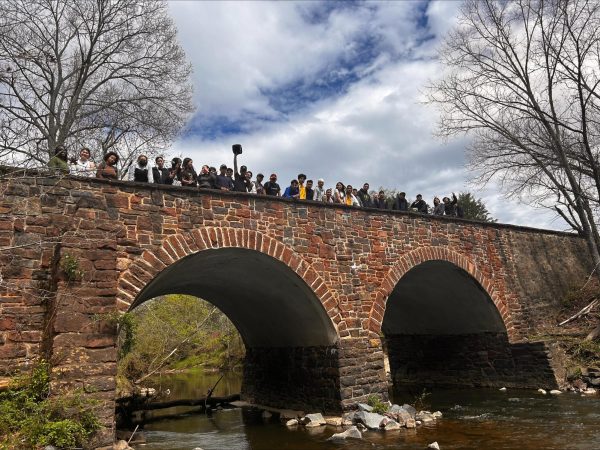
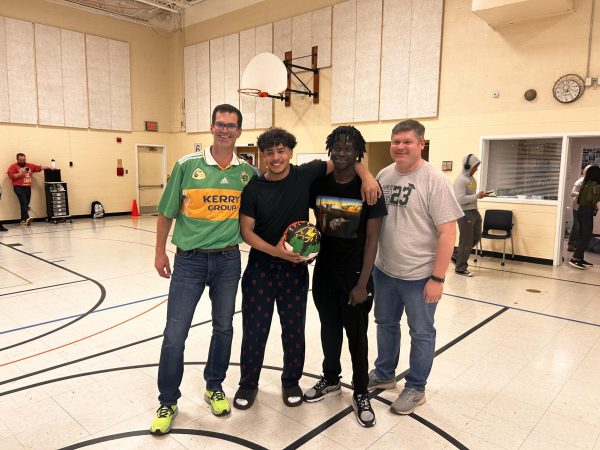
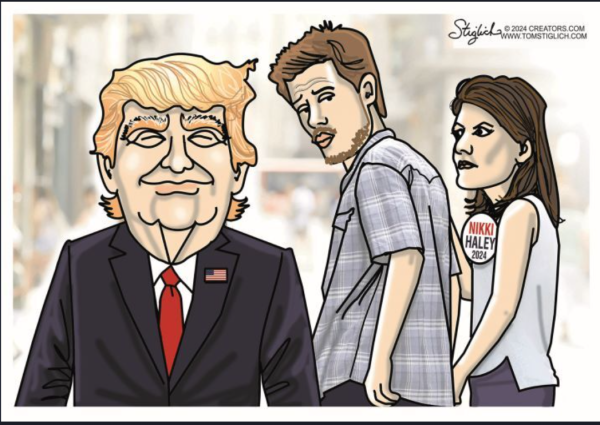
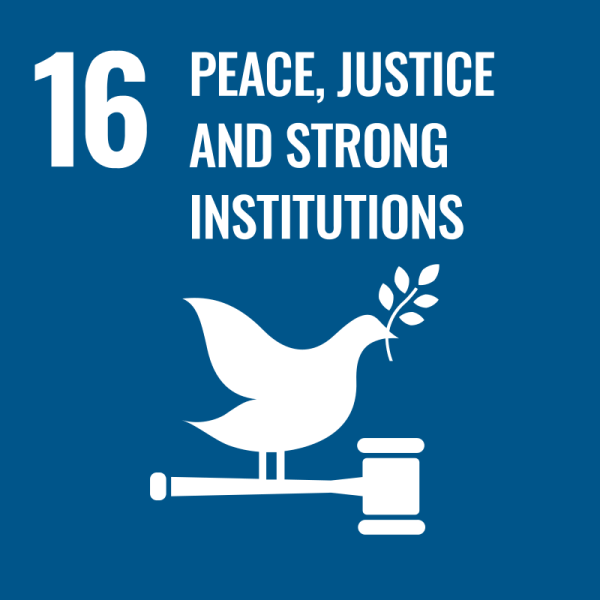

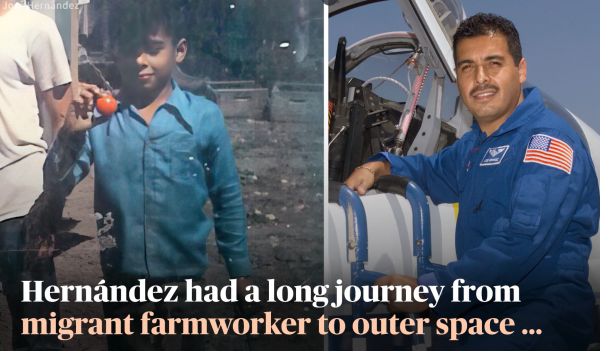
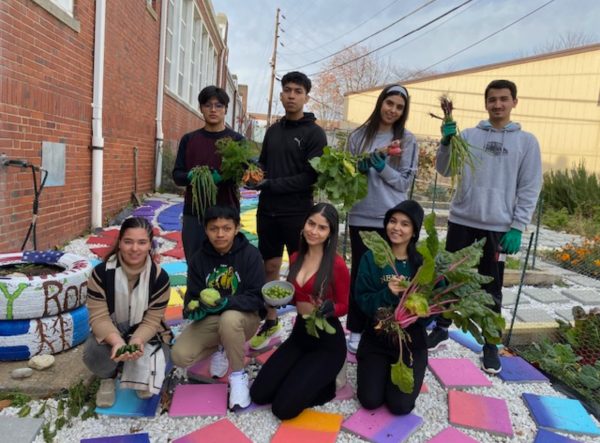
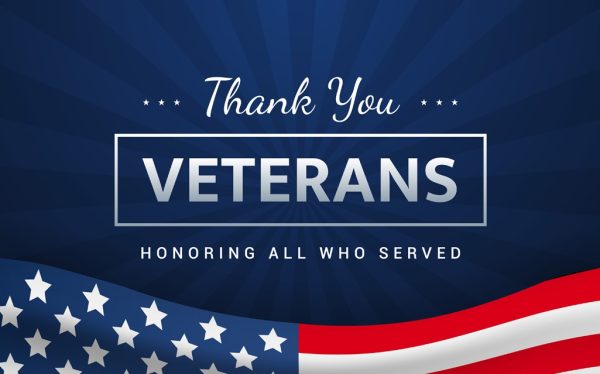
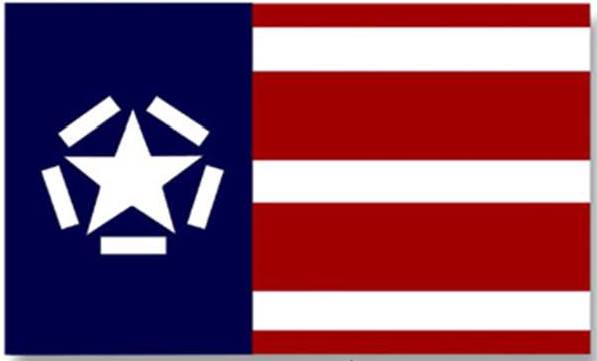
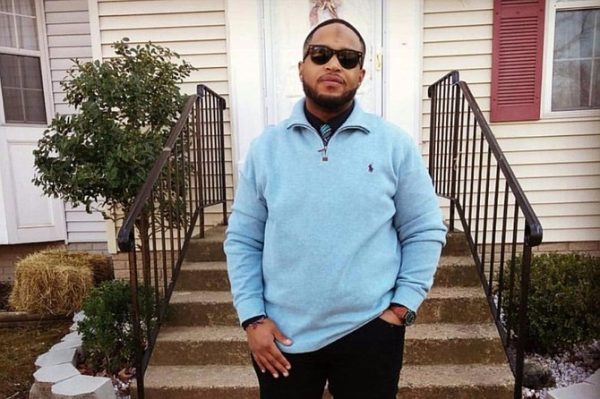
rdubbs • Mar 15, 2019 at 9:30 am
I would be interested in reading this book, as i have family that has suffered from addiction and myself has been incarcerated. I enjoy the idea of helping those less fortunate, I like what this student wrote about how religion divides people because i agree it does.
EJ • Mar 31, 2017 at 2:20 pm
I read the book and watched the movie and also saw him talking to us. He was just a great and helpful man. He did a lot just to help gang members, bring them back to a normal life. He literally spent have of his life trying to make the Homeboys industries. It works amazing now. G-dog his nick name called by gang members, his first place Homeboys bumbling, didn’t go well. After he opened Homeboys industries, he helped thousands of people in the past year or so.
Frednel24 • Mar 23, 2017 at 2:23 pm
What made Boyle very important in asserting himself to the gangs was his idea of a second opportunity to make a better choice. It is necessary to give a job to a gang member instead of taking his life with a bullet or putting them in prison. It is necessary to help and provided a second chance to someone who made a mistake in choosing the right type of life. The message is very clear and moving. Seeing gang members who were murderers or committed crimes without alternatives are now new people. For many, the life of gangs has paid them with death and others are prisoner without freedom. Those who are now free have a second chance to change their lives have demonstrated all these homies in the homeboys. I think G-Dog has a very compressive character with guys. When I watch the video and read some stories of the members, it seems that there is more to judge then to understand. G-Dog has that understanding to every situation in which each member of gang members is. I think that the way he treats and speaks make them feel more confident about themselves and more secure about the changes they want to make.
The way that made me feel the story of some of the ex-gang members was very touching. In my life I have experienced similar things to those people who are now changing their lives for the better in the Homeboys. I’m glad to see people like G-dog who are willing to help change lives and don’t matter to give everything to put a hope and provide a way out of gang’s life. It is very clear that no prison or violence are necessary to change people and make them take better decisions. A second opportunity is needed to be able to do so, plus moral support and comprehension.
eliza503 • Mar 22, 2017 at 2:15 pm
When I first hear that he is going to come to Mountain View I start to think why I should go, that is going to be bored. But at the end when I was listening to him I realize that I was wrong. He started to talk about what I love to hear. This kind of thing is what makes me cry because this is the reality many people just like to judge others, but they didn’t not know what this gangs member are passing. As Father Boyle said there is not bad person in this world, just people who chose do bad.
GucciJefe • Mar 22, 2017 at 12:05 pm
Today i learned that former gang rivals were once at war. However through kinship, they learned to forget about the past and look toward the future. Now these rival gang members are now laughing and sharing a joke together. Something i would never imagine happening. Growing up in a rough area i became immune to seeing rival gangs fight everyday so i wouldve never have thought 2 rival gang members would shake hands.
babybee • Mar 21, 2017 at 1:43 pm
I had read the introduction of the Tattoo on the heart in my English class. It was good to know a people, who worked hard to help others, from reading. Also, the writer of the Tattoo on the heart is coming to our school on March 22, 2017. I believe it will be a great time to listen to Father Boyle on personal.
chapin502 • Mar 2, 2017 at 2:34 pm
I this story because it talks about love without judge. We usually judge many people without have known their life. Sometimes people have a hard time though their life. Thus, they start to be in the streets with their friends.it is a big mistake that the young people usually make. SO SAD. when they are adults they find out that they waste their time doing bad thing. Young people, even you are having a hard time in you life don’t give up. You have to keeping work in what or who you want to be in the future.
Gary • Feb 23, 2017 at 2:10 pm
A line from this article that I felt was important was when the author said “He does not care about the labels of addiction, poverty and gangs. He sees the ones in most need as brother and sister to be respected and loved.” for me I find this surprising and new because not much people want to help out those who have committed a crime because of stereotypes. One question that I have is how effectively and what practices are/does Gregory J. Boyle mainly use to help steer each individual in the right direction?
Edu_Knight • Feb 23, 2017 at 1:41 pm
great story!! The video was really good, i like all the growth-mindset that we can see from it.